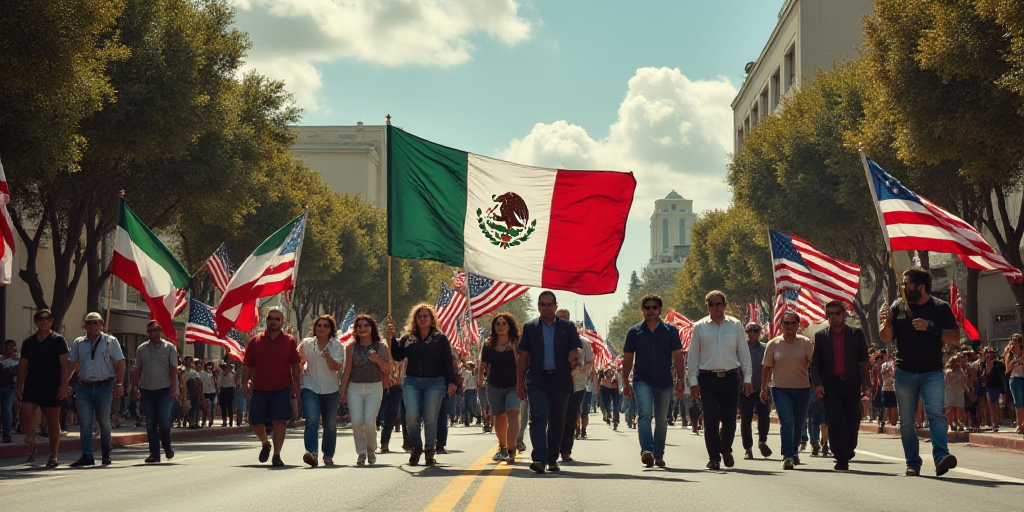Introduction to the Project and Its Relevance
Two Latina congresswomen, one Republican and the other Democrat, introduced the Dignity 2025 Act on Tuesday. This legislative proposal aims to grant legal status to migrants who have been in the United States for over five years, provided they have no criminal record and pay a fine.
The bill, presented by Republican Maria Elvira Salazar and Democrat Veronica Escobar, is a revised version of a 2023 proposal that failed to reach a consensus on immigration policy in Congress.
Historical Context and Previous Attempts
The last significant immigration reform in the United States occurred in 1986 during Republican President Ronald Reagan’s term. It provided a pathway to citizenship for millions of migrants, many of whom were agricultural workers.
Since then, numerous bills have been introduced, partly to court the Hispanic vote, but they have failed due to a lack of political consensus.
Key Features of the Dignity 2025 Act
The Dignity 2025 Act targets undocumented migrants who have been living in the U.S. since before December 31, 2020.
The act includes a seven-year “Dignity Program,” which grants work and travel authorization, as well as protection against deportation, provided the participants pass a background check, pay any owed taxes, and start paying income tax.
- Participants must pay $7,000 in “restitution” over the seven-year program duration. This amount is deposited into a fund that will manage grants to states and organizations to assist U.S. citizens seeking work or changing careers.
- Dignity Program participants are not eligible for federal benefits, must attend DHS interviews every two years, and maintain employment or be enrolled in at least four out of seven years, with exceptions.
- Those who pass the requirements can apply for renewable “Dignity Status” every seven years, indefinitely.
- However, the Dignity Program does not provide a pathway to U.S. citizenship.
Special Provisions for Dreamers
According to the bill, Dreamers (child migrants who entered the U.S.) can apply for citizenship in addition to obtaining legal status.
Strengthening Border Security
The act also aims to reinforce border security with Mexico.
Political Context and Timing
The introduction of the Dignity 2025 Act coincides with a deportation campaign led by Republican President Donald Trump, who has pledged a record number of removals of undocumented migrants.
Key Questions and Answers
- What is the Dignity 2025 Act? It’s a proposed legislation by two U.S. congresswomen to grant legal status to certain undocumented migrants who meet specific criteria.
- Who are the sponsors? The bill is sponsored by Republican Maria Elvira Salazar and Democrat Veronica Escobar.
- What are the key features of the act? It includes a seven-year Dignity Program offering work authorization, travel permission, and deportation protection for eligible migrants who pay a fine and meet other requirements.
- Does this act provide a pathway to U.S. citizenship? No, it does not.
- What special provisions are there for Dreamers? Dreamers can apply for citizenship in addition to obtaining legal status under this act.
- How does the act address border security? It aims to strengthen border security with Mexico.
- In what political context is this act being introduced? The introduction coincides with a deportation campaign led by President Donald Trump.






